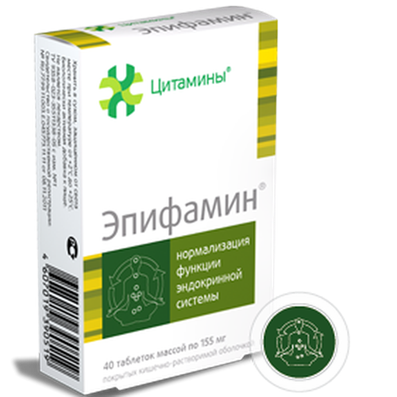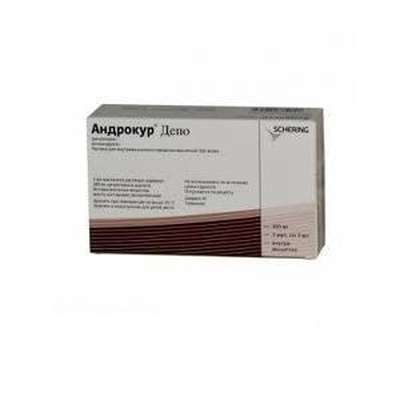Neurotic dysfunction of the gastrointestinal tract
09 Oct 2018
The emergence of some somatic pathologies is directly related to the negative impact of the everyday psycho-emotional stress that a modern person is exposed to. A few decades ago, official medicine did not consider stress a serious risk factor, but today the results of numerous studies have confirmed the validity of the joke saying that "all diseases are from nerves."
Patients with disguised neuroses and their various manifestations, as a rule, consult therapists, cardiologists and gastroenterologists. Functional disorders of the cardiovascular system and the gastrointestinal tract are considered the most frequent consequence of mental trauma, prolonged experiences and depressive conditions. So, for example, in 80% of patients with functional disorders of the digestive system, the basis of the disease is psychogenic disorders and emotional overstrain.

In this case, even a qualified specialist does not always succeed in immediately revealing the true cause of the pathological condition, since Clinico-instrumental studies do reveal various variants of morphofunctional disorders-usually minor, in the form of superficial gastritis, motor abnormalities of the gastrointestinal tract, refluxes, and so on. To think about the neurotic nature of a patient's condition most often causes complete ineffectiveness of the prescribed treatment, the absence of any connection between the course of the disease and the patient's diet, and also some features of his behavior.
Neuroses of the gastrointestinal tract: mechanisms of formation and features of the course
A common opinion on the mechanisms of formation of systemic neuroses, incl. - with gastroenterological symptoms, among specialists for today there. It is almost impossible to predict in advance which organ or system of organs will be more unstable to the negative impact of psychoemotional stress. The variant of the course of the neurosis, the peculiarity of its symptomatology, largely depends not only on the psychological characteristics of each patient, but also on the functional state of various systems of its organism, lifestyle and hereditary predisposition.
Of particular importance are the way of processing / experiencing negative emotions, the presence of an unconscious conflict, the basic protective mechanisms and the type of psychotrauma that has occurred. In the formation of a pathological condition, the absence of vegetative disturbances, as well as the acquired features of the affected system - past illnesses, injuries, etc., can not be avoided.
It is believed that psychosomatic patients with a gastroenterological variant of a neurosis according to the peculiarities of its course can be conditionally divided into three groups:
- neurotic disorders associated with chronic gastrointestinal diseases (and complicating their course);
- directly neurotic disorders of the functions of the digestive system;
- neurotic fixation (a tendency to exaggerate) the existing minor dysfunction of the digestive system.
In addition, depending on the form of the neurosis itself, the clinical picture of gastroenterological disorders also varies significantly. So, for example, in patients with hysterical neurosis, there are often bright descriptions and demonstrative manifestations of problems with the digestive system. As a rule, they are prone to numerous additional studies (and the "most serious" diagnosis) and may even insist on performing surgical treatment.
A patient with neurasthenia usually has the opposite picture: the desire to be convinced of the absence of serious diseases of the gastrointestinal tract provokes them for all new examinations and consultations with different specialists. Such patients try to be hospitalized on a regular basis or to be on a dispensary record in order to exclude even the slightest possibility of diseases and disorders.
For obsessive-compulsive neuroses, a classic manifestation is the physical processing of gastrointestinal complaints, a fanatical adherence to various health-improving diets and treatment methods (usually from the field of "folk" medicine), as well as a tendency to unmotivated carcinophobia.
"Gastric" manifestations of neuroses
The clinical symptomatology of gastrointestinal disorders in neuroses is diverse and multifaceted. The most common neurotic dysfunction of the stomach, which previously described as functional dyspepsia, pseudo-ulcer syndrome, irritable stomach syndrome. This disorder, as a rule, is manifested by neurotic vomiting - hysterical, appearing in the event of any conflict or stressful situations, or habitual - arising from the experience of the patient's state, communication with sick people and suppression of negative emotions.
An important diagnostic feature of neurotic vomiting is the ease of the entire process, almost not accompanied by previous nausea and painful straining. In addition, with psychogenic vomiting, there are usually no signs of vegetative disorders (pallor, sweating, excessive salivation).
Not less frequent variant of a stomach neurosis is considered and gastralgia - a pain, feeling of gravity and raspiranija in an epigastric area, a burning sensation. Here, a diagnostic criterion can be a direct relationship between strong experiences and the appearance of uncomfortable gastric symptoms. At the same time, the patient practically does not have any negative reaction to the eaten food.
But the gastric manifestations of neuroses do not end there. Long or acute stress can manifest itself in a variety of monosymptomatic disorders: nausea, swallowing, etc. So, one of the well-known signs of a neurosis is psychogenic esophagospasm, in which the patient experiences serious problems with swallowing liquid or solid foods. If, at the appearance of dysphagia, the patient was not immediately diagnosed and an adequate treatment is not prescribed, then in due course esophagospasm will begin to manifest not only during food intake, but also out of touch with food. It can lead to the appearance of pressing or burning pain behind the sternum and cause a suspicion of angina. A kind of esophagospasm is the sensation of a foreign body in the throat, which patients describe as a pressing lump or a burning sensation in the neck that temporarily weakens during meals. This symptom is especially common in young women.
A more rare type of neurotic reactions is a false sensation of a sick person emanating from him (from the mouth) unpleasant odor. It is not always possible to convince the patient of the mistakenness of his sensations. The arising obsession can gradually develop into a more serious mental disorder, when a person fixes on their experiences / feelings, begins to avoid contact with others and tries to self-isolate. Sometimes this symptom is accompanied by a disorder of taste - a false sense of bitterness in the mouth, not dependent on food intake and not associated with any organic pathologies. In some cases, the symptom complex is supplemented by a burning sensation and tingling sensation in the tongue.
"Intestinal" neurotic symptoms
Neurotic disorders of the intestine have received the generalized name of irritable bowel syndrome (in some cases - dyskinesia of the intestine, etc.). In addition to the neurotic disorders proper, no less frequent are cases when neurosis only aggravates the already existing bowel disease.
Most often, patients complain of painful abdominal cramps (burning, stitching, aching, etc.), which appear spontaneously, and with nervous tension intensify. Also, intestinal neuroses are characterized by peculiar intestinal crises in the form of acute painful attacks accompanied by flatulence and urge to defecate. Often the patient is so fixed on his condition that he is forced to give up his usual daily activities, limit his communication with others and visit public places.
Among the neurotic intestinal symptoms include intestinal motility disorder, manifested by chronic constipation, psychogenic diarrhea (the so-called "bear disease"), and the alternation of these disorders. Such patients are characterized by increased attention to the peculiarities of their condition, excessive care for the act of defecation and exaggeration of the severity of their condition, up to the development of hypochondriacal depression.
In addition to gastric and intestinal disorders, gastroenterological neuroses are also referred to as aerophagia (occurs with hysterical neurosis) and pathology of eating behavior - anorexia nervosa and pathological overeating (bulimia).
Complex therapy options
Treatment of patients with neurotic disorders of the gastrointestinal tract primarily involves eliminating the root cause of the disease, i.e. a neurosis. Only in this case it is possible to normalize the patient's condition and prevent possible relapses.
The most important role is assigned to psychotherapeutic methods, both individual and group. Their goal is to understand the patient's existing psychological problems and the connection of his illness with stress, and, if possible, switching the attention of a person to solving conflict situations, etc.
Drug therapy for neuroses involves the appointment of tranquilizers (diazepam, chlordiazepoxide, Sibazone, meprobamate, Relanium) or, in more severe cases, small doses of neuroleptics (thioridazine, chlorprotixen, fluspirilene).
In case of prevalence of neurasthenic symptoms, the combined use of tranquilizers with nootropics (Phenibut, etc.) or Aminalone is indicated. In severe sleep disorders, sedatives (nitrazepam, phenazepam) are recommended.
And, of course, given the presence of gastroenterological manifestations, the patient needs a set of therapeutic measures aimed at eliminating the main symptoms.
Necessity in strict dietary restrictions, as a rule, no, except for cases with concomitant chronic pathology of the gastrointestinal tract. Nutrition of the patient must be physiological, containing a sufficient number of high-grade proteins and vitamins. In patients with anorexic phenomena, it is possible to temporarily administer parenteral nutrition or additional intake of multivitamin complexes.
As symptomatic treatment of gastroenterological disorders, depending on the nature of the course of neurosis, antacid preparations, gastroprotectors, antispasmodics and enzymatic agents can be prescribed. They will not only help to quickly repair existing violations, but also have a psychotherapeutic effect on the patient, which in turn will help to eliminate the underlying cause of the disease more quickly.

 Cart
Cart





